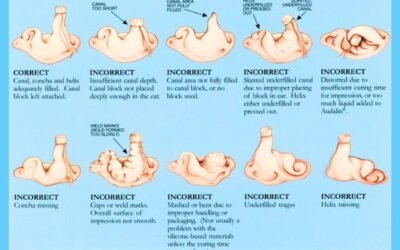Disorders of vestibular system cause vertigo and are divided into:
- Peripheral, which involve vestibular end organs and their 1st order neurons (i.e. the vestibular nerve). The cause lies in the internal ear or the VIIIth nerve. They are responsible for 85% of all cases of vertigo.
- Central, which involve central nervous system after the entrance of vestibular nerve in the brainstem and involve vestibulo-ocular, vestibulospinal and other central nervous system pathways.
Peripheral (Lesions of end organs vestibular nerve)
Ménière’s disease: It is characterized by vertigo, fluctuating hearing loss, tinnitus and sense of pressure in the involved ear. Vertigo is of sudden onset, lasts for a few minutes to 24 h or so.

Benign paroxysmal positional vertigo (BPPV): It is characterized by vertigo when the head is placed in a certain critical position. There is no hearing loss or other neurologic symptoms. Positional testing establishes the diagnosis and helps to differentiate it from positional vertigo of central origin. Disease is caused by a disorder of posterior semicircular canal though many patients have history of head trauma and ear infection.
Vestibular neuronitis: It is characterized by severe vertigo of sudden onset with no cochlear symptoms.
Attacks may last from a few days to 2 or 3 weeks. It is thought to occur due to a virus that attacks vestibular ganglion. Management of acute attack is similar to that in Ménière’s disease. The disease is usually self-limiting.
Labyrinthitis: These are three types of labyrinthitis:
- Circumscribed labyrinthitis is seen in cases of unsafe type of chronic suppurative otitis media (CSOM) and fistula test is positive.
- Serous labyrinthitis is caused by trauma or infection (viral or bacterial) adjacent to inner ear but without actual invasion. There is severe vertigo and sensorineural hearing loss. A partial or full recovery of inner ear functions is possible if treated early.
- Purulent labyrinthitis is a complication of CSOM. There is actual bacterial invasion of inner ear with total loss of cochlear and vestibular functions. Vertigo in this condition is due to acute vestibular failure. There is severe nausea and vomiting. Nystagmus is seen to the opposite side due to destruction of the affected
labyrinth.
Vestibulotoxic drugs: Several drugs cause ototoxicity by damaging the hair cells of the inner ear. Some primarily affect the cochlear while others affect the vestibular labyrinth. Aminoglycoside antibiotics particularly streptomycin, gentamicin and kanamycin have been shown to affect hair cells of the crista ampullaris and to some extent those of the maculae.
Head trauma: Head injury may cause concussion of labyrinth, completely disrupt the bony labyrinth or VIIIth nerve, or cause a perilymph fistula. Severe acoustic trauma, such as that caused by an explosion, can also disturb the vestibular end organ (otoliths) and result in vertigo.
Perilymph fistula: In this condition, perilymph leaks into the middle ear through the oval or round window. It can follow as a complication of stapedectomy, or ear surgery when stapes is accidentally dislocated. It can also result from sudden pressure changes in the middle ear (e.g. barotrauma, diving, forceful Valsalva) or raised intracranial pressure (weightlifting or vigorous coughing). A perilymph fistula causes intermittent vertigo and fluctuating sensorineural hearing loss, sometimes with tinnitus and sense of fullness in the ear (compare Ménière’s disease).
Syphilis: Syphilis of inner ear, both acquired and congenital, causes dizziness in addition to sensorineural hearing loss. Late congenital syphilis usually manifesting between 8 and 20 years, mimics Ménière’s disease with episodes of acute vertigo, sensorineural hearing loss and tinnitus. Hennebert’s sign, i.e. a positive fistula test in the presence of an intact tympanic membrane, is present in congenital syphilis. Neurosyphilis (tertiary acquired) can cause central type of vestibular dysfunction.
Acoustic neuroma: It has been classified in peripheral vestibular disorders as it arises from CN VIII within internal acoustic meatus. It causes only unsteadiness or vague sensation of motion. Severe episodic vertigo, as seen in the end organ disease, is usually missing
Central (Lesions of brainstem and central connections)
Vertebrobasilar insufficiency: It is a common cause of central vertigo in patients over the age of 50 years. There is transient decrease in cerebral blood flow. Common cause is atherosclerosis. Ischaemia in these patients may also be precipitated by hypotension or neck movements when cervical osteophytes press on the vertebral arteries during rotation and extension of head.
Posterior inferior cerebellar artery syndrome (Wallenberg Syndrome): Thrombosis of the posterior inferior cerebellar artery cuts off blood supply to lateral medullary area. There is violent vertigo along with diplopia, dysphagia, hoarseness, Horner syndrome, sensory loss on ipsilateral side of face and contralateral side of the body, and ataxia. There may be horizontal or rotatory nystagmus to the side of the lesion.
Basilar migraine: Migraine is a vascular syndrome producing recurrent headaches with symptom-free intervals. Headache is usually unilateral and of the throbbing type. Basilar arteryBasilar artery is an artery that connects the two vertebral arteries to the posterior part of the circle of Willis. It progresses upward on the front surface of the pons and supplies blood to the pons. Reference: Introduction to Neurogenic Communication Disorders (Eighth Edition) - Robert H. Brookshire [Book Pg. No. 451] More migraine produces occipital headache, visual disturbances, diplopia and severe vertigo which is abrupt and may last for 5–60 min. Basilar migraine is common in adolescent girls with strong menstrual relationship and positive family history.
Cerebellar disease: Cerebellum may be affected by haemorrhage (hypertension), infarction (occlusion of
arterial supply), infection (otogenic cerebellar abscess) or tumours (glioma, teratoma or haemangioma). Acute cerebellar disease may cause severe vertigo, vomiting and ataxia simulating an acute peripheral labyrinthine disorder.
Multiple sclerosis: It is a demyelinating disease affecting young adults. Vertigo and dizziness are common complaints. There are other multiple neurological signs and symptoms, e.g. blurring or loss of vision, diplopia, dysarthria, paraesthesia and ataxia. Spontaneous nystagmus may be seen. Acquired pendular nystagmus dissociated nystagmus and vertical upbeat nystagmus are important features in diagnosis.
Tumours of brainstem and fourth ventricle: Gliomas and astrocytomas may arise from pons and midbrain; medulloblastoma, ependymomas, epidermoid cysts or teratomas may arise from floor of IVth ventricle. These tumours cause other neurological signs and symptoms in addition to vertigo and dizziness.
Epilepsy: Vertigo may occur as an aura in temporal lobe epilepsy. The history of seizure and/or unconsciousness following the aura may help in the diagnosis. Sometimes, vertigo is the only symptom of epilepsy and that may pose a difficult diagnostic problem.
Cervical vertigo: Vertigo may follow injuries of neck 7–10 days after the accident. It is usually provoked with movements of neck to the side of injury. Examination shows tenderness of neck, spasms of cervical muscles and limitation of neck movements.
Other causes of Vertigo
Ocular Vertigo: Normally, balance is maintained by integrated information received from the eyes, labyrinths and somatosensory system. A mismatch of information from any of these organs causes vertigo and in this case from the eyes. Ocular vertigo may occur in case of acute extraocular muscle paresis or high errors of refraction.
Psychogenic Vertigo: This diagnosis is suspected in patients suffering from emotional tension and anxiety. Often other symptoms of neurosis, e.g. palpitation, breathlessness, fatigue, insomnia, profuse sweating and tremors are also present. Symptom of vertigo is often vague in the form of floating or swimming sensation or light headedness. There is no nystagmus or hearing loss. Caloric test shows an exaggerated response.
References:
⇒ Diseases of Ear, Nose and Throat & Head and Neck Surgery – PL Dingra (Book)
⇒ Essentials of Audiology – Stanley A. Gelfand, PhD (Book)
You are reading about:
Disorders of Vestibular System




0 Comments